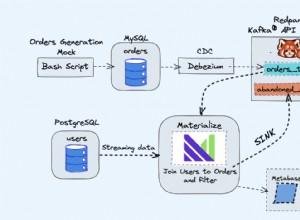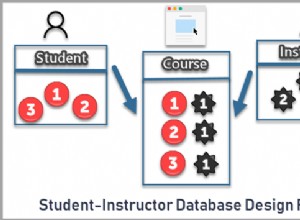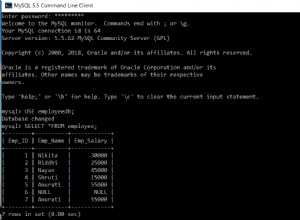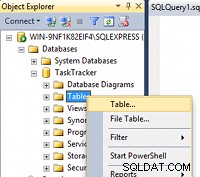Eu uso o seguinte para renderizar imagens do exemplo JPA (Hibernate Backed) usa o struts2-conventions-plugin, na anotação do tipo de resultado "stream" é tudo o que há para a visualização:
package com.kenmcwilliams.photogallery.action.gallery;
import com.kenmcwilliams.photogallery.orm.Picture;
import com.kenmcwilliams.photogallery.orm.PictureDetails;
import com.kenmcwilliams.photogallery.service.Gallery;
import com.opensymphony.xwork2.ActionSupport;
import java.io.ByteArrayInputStream;
import java.io.InputStream;
import org.apache.struts2.convention.annotation.Result;
import org.springframework.beans.factory.annotation.Autowired;
@Result(type = "stream", params = {
"contentType", "${contentType}",
"contentLength", "${contentLength}",
"contentDisposition", "${contentDisposition}",
"inputStream", "${inputName}",
"bufferSize", "${bufferSize}",
"allowCaching", "${allowCaching}"
})
public class Stream extends ActionSupport {
@Autowired private Gallery gallery;
private String contentType = "text/plain";
private int contentLength = 0;
private String contentDisposition = "inline";
private InputStream inputStream;
public String inputName = "inputStream";//This should not be required
private Integer bufferSize = 1024;
private String allowCaching = "true";
private Integer id = null;
@Override
public String execute() {
if (id != null){
//gallery.get
PictureDetails details = gallery.getPictureDetails(id);
Picture photo = details.getPictureId();
this.contentType = details.getContentType();
System.out.println("Content Type: " + contentType);
ByteArrayInputStream byteArrayInputStream = new ByteArrayInputStream(photo.getPicture());
this.contentLength = photo.getPicture().length;
System.out.println("Content Length: " + contentLength);
this.inputStream = byteArrayInputStream;
}else{
return ERROR;
}
return SUCCESS;
}
/**
* @return the contentType
*/
public String getContentType() {
return contentType;
}
/**
* @param contentType the contentType to set
*/
public void setContentType(String contentType) {
this.contentType = contentType;
}
/**
* @return the contentLength
*/
public int getContentLength() {
return contentLength;
}
/**
* @param contentLength the contentLength to set
*/
public void setContentLength(int contentLength) {
this.contentLength = contentLength;
}
/**
* @return the contentDisposition
*/
public String getContentDisposition() {
return contentDisposition;
}
/**
* @param contentDisposition the contentDisposition to set
*/
public void setContentDisposition(String contentDisposition) {
this.contentDisposition = contentDisposition;
}
/**
* @return the bufferSize
*/
public int getBufferSize() {
return bufferSize;
}
/**
* @return the allowCaching
*/
public String getAllowCaching() {
return allowCaching;
}
/**
* @param allowCaching the allowCaching to set
*/
public void setAllowCaching(String allowCaching) {
this.allowCaching = allowCaching;
}
/**
* @return the inputStream
*/
public InputStream getInputStream() {
return inputStream;
}
/**
* @param inputStream the inputStream to set
*/
public void setInputStream(InputStream inputStream) {
this.inputStream = inputStream;
}
/**
* @return the id
*/
public int getId() {
return id;
}
/**
* @param id the id to set
*/
public void setId(int id) {
this.id = id;
}
}
Você também perguntou sobre como exibir o acima, o seguinte é um JSP usado para mostrar uma galeria de imagens (assim a ação fornecerá a este JSP ids de imagem que a ação acima usará para obter as imagens do banco de dados e o título de a galeria).
Se bem me lembro, esta galeria exibe quatro fotos de largura com quantas linhas forem necessárias para mostrar todas as fotos.
<%@taglib prefix="s" uri="/struts-tags"%>
<%@page contentType="text/html" pageEncoding="UTF-8"%>
<!DOCTYPE html>
<html>
<head>
<meta http-equiv="Content-Type" content="text/html; charset=UTF-8">
<title>JSP Page</title>
</head>
<body>
<h1><s:property value="photoGallery.name"/></h1>
<table>
<s:iterator begin="0" end="pictureDetails.size/4" var="row">
<tr>
<s:subset source="pictureDetails" start="4 * #row" count="4">
<s:iterator>
<s:url forceAddSchemeHostAndPort="true" namespace="/gallery" action="stream" var="streamURL">
<s:param name="id" value="id"/>
</s:url>
<td>
<s:a value="%{#streamURL}"><img width="200px" src="<s:property value="#streamURL"/>"/></s:a>
</td>
</s:iterator>
</s:subset>
</tr>
</s:iterator>
</table>
</body>
</html>
Na linha acima, provavelmente esta parte é provavelmente o que você deseja:
<img width="200px" src="<s:property value="#streamURL"/>"/>




